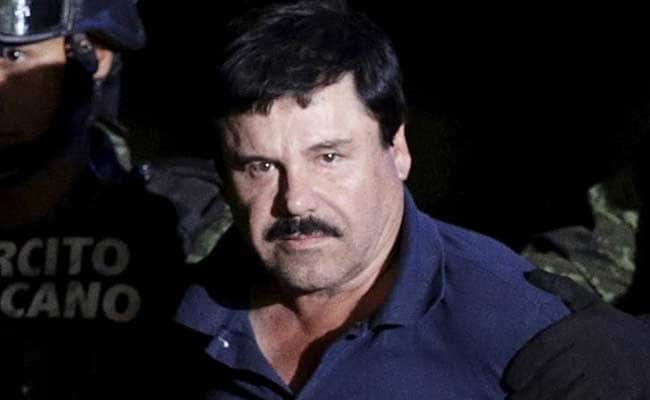In 2019, El Chapo, the Sinaloa cartel’s founder, was awarded a life sentence
The sons of notorious drug lord Joaquin ”El Chapo” Guzman and their cartel associates allegedly used corkscrews, electrocution and hot chiles to torture their rivals, according to an indictment recently released by the US Justice Department. Some of their enemies have also allegedly been ”fed dead or alive to tigers.”
As per a report by CBS News, Ovidio Guzmán López, Jesús Alfredo Guzmán Salazar and Iván Archivaldo Guzmán Sálazar –known as the Chapitos, or little Chapos, were among 28 Sinaloa cartel members charged last week in connection to a widespread fentanyl trafficking operation.
The indictment also details the barbaric methods of torture and executions used by the cartel to extend power and intimidate enemies.
“Once the information was obtained by these captives, typically through torture, these individuals were killed — either by or at the direction of the Chapitos themselves — and the bodies disposed of throughout the area. While many of these victims were shot, others were fed dead or alive to tigers” belonging to Ivan and Alfredo”, the indictment says.
Prosecutors further claimed the 2017 capture and death of two Mexican federal law enforcement officers involved two of El Chapo’s sons. While one of them was interrogated and subsequently killed, the other was subjected to horrific torture.
”For approximately two hours, members of the Ninis tortured Victim-5 by inserting a corkscrew into Victim 5’s muscles, ripping it out of his muscles, and placing hot chiles in his open wounds and nose” before being shot dead by Iván Archivaldo Guzmán Sálazar, the indictment alleges.
They also used electrocution and waterboarding to torture members of rival drug cartels as well as associates who refused to pay debts.
In 2019, El Chapo, the Sinaloa cartel’s founder, was awarded a life sentence in a maximum security prison in Colorado. A jury convicted him of drug trafficking and engaging in multiple murder conspiracies as the leader of the Sinaloa Cartel. In January 2023, Ovidio Guzman, nicknamed “El Raton” was also captured.
However, the cartel still remains one of the most powerful in Mexico, accused of exploiting an opioid epidemic by flooding communities with fentanyl, a synthetic drug about 50 times more potent than heroin.


